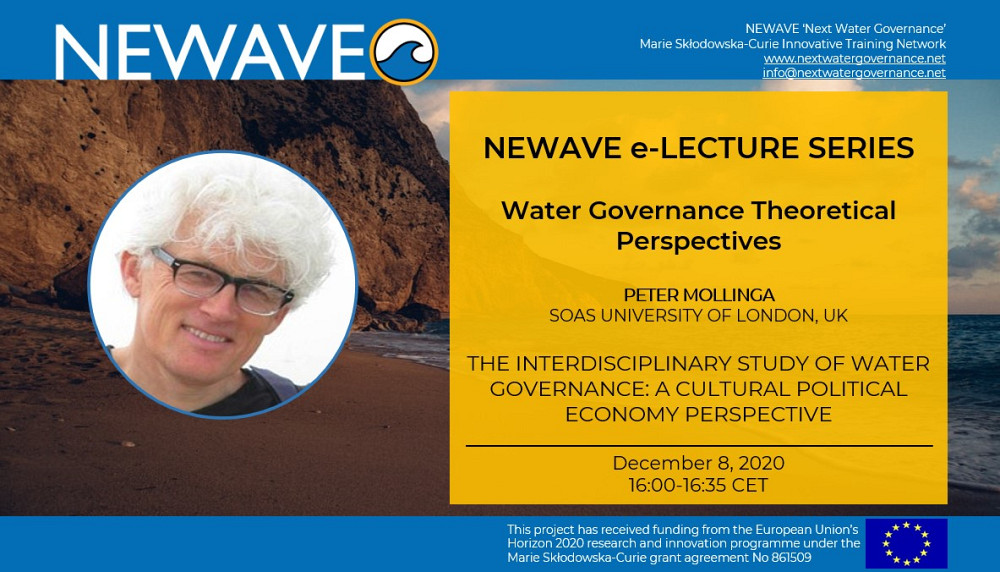NEWAVE e-Lecture Series: The interdisciplinary study of water governance: a cultural political economy perspective | Prof. Peter Mollinga
The interdisciplinary study of water governance: a cultural political economy perspective
References:
Sum, N. L., & Jessop, B. (2013). 'Introduction' in Towards a cultural political economy: Putting culture in its place in political economy. Edward Elgar Publishing. pp. 1-30. (Can be read in Google Books).
Mollinga, P. P. (2008). Water, politics and development: Framing a political sociology of water resources management. Water Alternatives, 1(1): 7-23 (available online).
Mollinga, P. P. (2020). Knowledge, context and problemsheds: a critical realist method for interdisciplinary water studies. Water International, 45(5), 388-415.
Prof. Peter Mollinga
Peter Mollinga is a Professor of Development Studies, at the Department of Development Studies SOAS University of London. His research interests are: 1) water and development; 2) the dynamics of agriculture and environmental resources management; 3) interdisciplinarity in efforts at ‘integrated’ natural resources management and governance. His geographical focus is Asia, particularly South Asia and Central Asia. He was trained as an irrigation engineer at Wageningen University, the Netherlands; his Master's dissertation was on small-scale irrigation management in the Senegal River valley; his Ph.D. is on irrigation water management in South India. He completed his Habilitation in Development Sociology at the University of Bonn, Germany. Since 2010 he is Professor of Development Studies at SOAS University of London, UK, where he also initiated the Centre for Water and Development.
About the e-Lecture Series:
This online training module has the objective to engage the NEWAVESRs and the audience in different water governance perspectives. All lectures are open to the public upon registration.
Please register here
A participation certificate can be requested if attending at least 80% of the online public talks.
*All times are in CET (UTC+1)
We would love to know what you think! Please leave a comment below and engage in our online discussion group.




